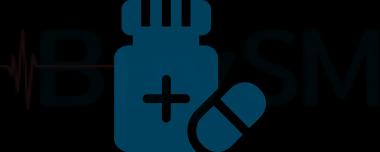

Cresp 100 mcg PFS | 100 mcg in 0.5 ml PFS
- Manufacturer/Marketed By
Dr Reddy'S Laboratories Ltd
- Active Pharmaceutical Ingredient
Darbepoetin 100 mcg
(Inclusive of all taxes)
Introduction of Cresp 100 mcg Injection
Cresp 100 mcg PFS is an erythropoiesis-stimulating agent. Darbepoetin Alfa Injection 100 mcg is used in the treatment of anemia due to chronic kidney disease and anemia due to chemotherapy. Cresp 100 mcg Prefilled Syringe works by stimulating the bone marrow (soft tissue inside the bones, which produces red blood cells) to produce more red blood cells.
Cresp Injection may cause some common adverse effects, including low blood pressure, cough, trouble breathing, stomach pain, and swelling in your arms or legs. However, Cresp 100 mcg may also lead to more severe side effects, such as headache, unusual weakness or tiredness, seizure (convulsions), shortness of breath, swelling, and rapid weight gain. Please inform your doctor,, as these are the most frequently reported side effects. Your doctor may be able to provide suggestions for reducing or preventing these side effects.
Using Darbepoetin Alfa Injection 100 mcg may increase the chance of severe heart or circulation issues, such as stroke or heart attack, which can be life-threatening. If you notice any symptoms such as chest pain, shortness of breath, sudden numbness or weakness, confusion, vision or balance problems, difficulty speaking or understanding, or pain or coldness in an arm or leg, you should discontinue the use of Anti-anemia Drug Cresp and seek immediate medical attention from a doctor.
Before taking Cresp Injection, you should inform your doctor of any pre-existing medical conditions, such as uncontrolled blood pressure, heart disease, liver or kidney problems, seizures, or blood clot problems, or if you are currently taking any other medications, including prescription drugs, over-the-counter medications, vitamins, and herbal remedies. This is because Cresp 100 mcg may interact with other medications and result in adverse effects. Your doctor may need to adjust your dosage or closely monitor you for any side effects.
Cresp 100 mcg Prefilled Syringe can be administered under the skin or infused into a vein. Your doctor will decide the appropriate dose and frequency of administration based on the severity of your condition, which may change over time. It is important to follow your doctor's instructions for taking Cresp 100 mcg, as taking the wrong dose or taking too much may result in severe adverse effects. Even though it may take several weeks or months to observe the benefits of the Cresp 100 mcg PFS, you may need to undergo frequent medical tests to ensure that the medication is not causing any harmful effects.
Uses of Cresp 100 mcg Injection
Treatment of Anemia due to chronic kidney disease: Cresp 100 mcg is used in the treatment of anemia associated with chronic kidney failure in adults and pediatric patients.
Treatment of Anemia due to cancer chemotherapy: Cresp 100 mcg PFS is used in the treatment of anemia in adult cancer patients with non-myeloid malignancies receiving chemotherapy.
Benefits of Cresp 100 mcg Injection
Treatment of Anemia due to Chronic Kidney Disease: Anemia is a condition where your body does not have enough red blood cells to carry oxygen around your body. Chronic kidney disease (CKD) refers to the loss of normal kidney function over a long span of time. CKD progresses gradually over a few years but may become permanent if left untreated. CKD can lead to anemia. Anti-anemia Drug Cresp can boost your levels of red blood cells and reduce the symptoms of anemia, such as tiredness and weakness. Taking this injection improves the quality of life.
Treatment of Anemia due to Cancer Chemotherapy: Anemia caused by cancer chemotherapy is a common side effect of cancer treatment that occurs when the chemotherapy drugs damage or destroy the bone marrow cells responsible for producing red blood cells. This can lead to a decrease in the number of red blood cells, resulting in symptoms such as fatigue, weakness, shortness of breath, and dizziness. Darbepoetin Alfa Injection 100 mcg may help the body produce more red blood cells. Iron supplements may also be recommended to support the production of healthy red blood cells. In addition, maintaining lifestyle changes such as a healthy diet, regular exercise, and quitting smoking may also be recommended to manage anemia caused by chemotherapy. Close monitoring of vitals and regular blood tests are also essential in managing anemia and preventing complications associated with chemotherapy.
Side Effects of Cresp 100 mcg Injection
Like all medications, Cresp 100 mcg PFS can cause side effects but do not require any medical attention and disappear as your body adjusts to the medicine. Consult your doctor if they persist or if you’re worried about them.
Most Common Side Effects of Cresp 100 mcg Injection
- Cough
- Peripheral edema
- Procedural hypotension (low blood pressure)
- Convulsion
- Thromboembolism
Common Side Effects of Cresp 100 mcg Injection
- High blood pressure
- Rash
- Injection site pain, swelling
- Breathlessness
How to Use Cresp 100 mcg Injection?
Anti-anemia Drug Cresp can be administered under the skin or by infusion into a vein. Your doctor will decide the appropriate dose and frequency of administration based on the severity of your condition, which may change over time. It is important to follow your doctor's instructions for taking Cresp 100 mcg PFS, as taking the wrong dose or taking too much may result in severe adverse effects. Even though it may take several weeks or months to observe the benefits of the Cresp 100 mcg Prefilled Syringe, you may need to undergo frequent medical tests to ensure that the medication is not causing any harmful effects.
How Cresp 100 mcg Injection Works?
Cresp 100 mcg has enough erythropoietin (EPO), a hormone that stimulates the production of red blood cells in the bone marrow. As a result, the body may not have enough red blood cells to carry oxygen to the organs and tissues, leading to symptoms such as fatigue, weakness, shortness of breath, and dizziness. Cresp Injection may help the body produce more red blood cells. Iron supplements may also be recommended to support the production of healthy red blood cells.
Safety Advices Cresp 100 mcg Injection
Kidney
Safe
Cresp 100 mcg PFS is safe to use in patients with kidney disease. No dose adjustment of Cresp 100 mcg is recommended. If you experience any side effects please consult your doctor.
Liver
Use with Caution
Anti-anemia Drug Cresp should be used with caution in patients with liver disease. It is important that patients with liver disease closely monitor liver function while taking Cresp 100 mcg and report any unusual symptoms or changes in liver function to their doctor. The dose of Cresp Injection may need to be adjusted in patients with liver disease.
Pregnancy
Unsafe
Use of Cresp 100 mcg Prefilled Syringe may be unsafe during pregnancy, as limited animal studies indicate that it may harm the developing fetus. However, if you are pregnant or planning to become pregnant, it is important to talk to your doctor about the potential risks and benefits of taking Cresp 100 mcg during pregnancy. Your doctor will be able to help you make the best decision for you and your baby's health.
Driving
Safe
Darbepoetin Alfa Injection 100 mcg should not affect your ability to drive or use machinery.
Alcohol
Unsafe
It is generally not recommended to drink alcohol while taking Cresp 100 mcg Prefilled Syringe. It may increase the risk of liver damage. it is best to avoid alcohol or limit your alcohol consumption while taking any medication.
Breastfeeding
Unsafe
It is not recommended to breastfeed while taking Anti-anemia Drug Cresp. Cresp 100 mcg may pass into breast milk and harm the infant. If you are breastfeeding and taking Cresp 100 mcg PFS, it is important to talk to your doctor about the possible risks and benefits of continuing to breastfeed. Your doctor will be able to help you make the best decision for you and your baby's health.
Similar Medicines
Nephrology
Why customers like you choose BuySM.com?

Genuine Medicine
We maintain complete transparency in our sourcing and supply chain processes.

Secure Payments
This ensures that all data exchanged between your browser and our server remains confidential and secure

Fast Delivery
Stay informed about the status of your order with our real-time tracking feature.

Best Price & Offer
Enjoy even greater savings by taking advantage of our bundle offers.

5,000
Total Customers

15,000+
Products Sold Out

10,000+
Orders Delivered

10+
Cities







